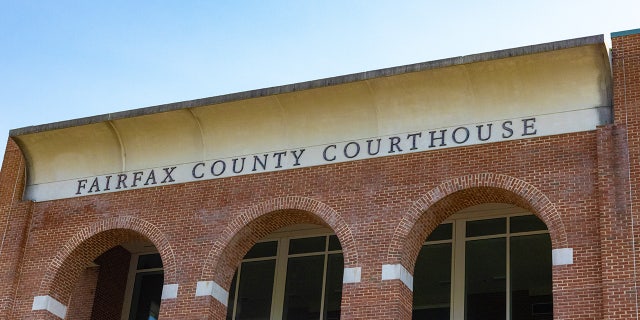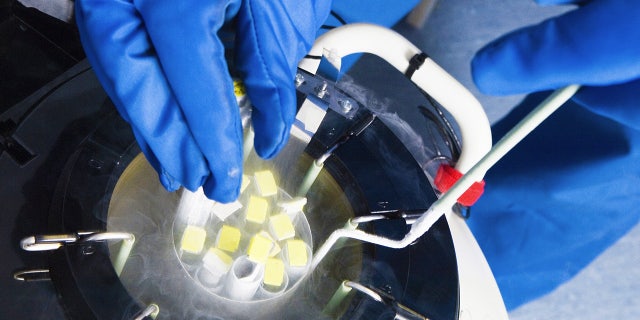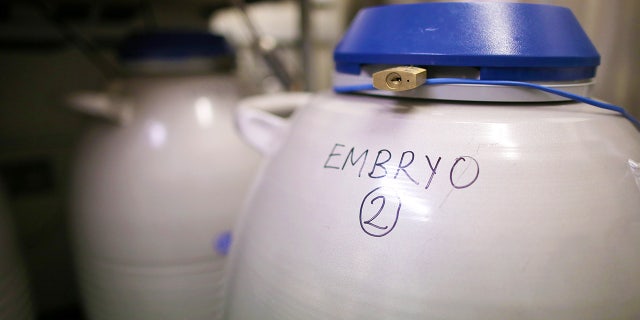Virginia Judge Uses Slavery Era Law to Prove Human Embryos Can Be Considered Property
A Virginia judge ruled that frozen human embryos are legally considered property, using the 19th century slave treatment law as the legal basis for his decision.
A preliminary ruling issued last month by Fairfax County District Court Judge Richard Gardiner is under scrutiny from lawyers who believe the judge wrongfully based his decision on measures taken from Virginia’s history when it was legal to own people.
The decision by Judge Gardiner, District Court Judge for the 19th District of Virginia, comes amid a dispute between a divorced man and woman in which an ex-wife wants to use two frozen embryos created by the couple when they were married to conceive another child. .
“It’s disgusting and morally disgusting,” Susan Crokin, a lawyer and academic at Georgetown University’s Kennedy Institute of Ethics and an expert in reproductive technology law, told The Associated Press.
VIRGINIA CITY COUNCIL MEMBER SENTENCED FOR ALLEGED EXPLOITATION OF UNCLE WITH ALZHEIMER DISEASE: REPORTS

Fairfax County, Virginia District Court Judge Richard Gardiner recently ruled that frozen embryos are legally considered property, using a 19th-century slave treatment law to justify his decision. (Brian Dozier/Anadolu Agency via Getty Images)
Gardiner’s decision is not final as he has yet to rule on other arguments in the case involving Honeyline and Jason Heidemann, a divorced couple arguing over two frozen embryos that remain in storage.
Honeyline, 45, wants to use the embryos, but her ex-husband Jason objects.
Initially, Gardiner sided with Jason. The law underlying the case governs how to separate “property and chattels”. The judge ruled that because embryos cannot be bought or sold, they cannot be treated as such and therefore Honeyhline cannot claim custody of them under this law.
But after ex-wife’s lawyer Adam Kronfeld asked the judge to reconsider his decision, Gardiner delved deep into the history of the law. He found that before the Civil War, this also applied to slaves. The judge then studied old regulations governing custody disputes involving slaves and said he found parallels that led him to reconsider whether the law should apply to embryos.
VA LEGISLATIVE CHARGED FOR ALLEGED USE OF OFF-ROAD VEHICLE TO HIT WOMAN WITH WHOM WERE ARGUING AND LEAVE FROM SEAT

A doctor retrieves embryo samples from cryogenic storage. (Universal Images Group via Getty Images)
In a separate part of his opinion, Gardiner also said he was wrong when he initially concluded that human embryos should not be sold.
“Because there is no ban on the sale of human embryos, they can be valued and sold and thus can be considered “goods or movable property,” he wrote.
Krokin said she does not know of any other judge in the US who has come to the conclusion that human embryos can be bought and sold. She said the trend, if anything, was to recognize that embryos need to be treated more subtly than just property.

Fertilized embryos are kept in tanks filled with liquid nitrogen to keep them as new if patients need them later. (Christopher Furlong/Getty Images)
CLICK HERE TO GET THE FOX NEWS APP
None of the Heidemann lawyers ever raised the issue of slavery. However, they presented other arguments in support of their cases.
Jason’s lawyers said allowing his ex-wife to implant the embryos they created when they were married “would force Mr. Heidemann to procreate against his will and therefore violate his constitutional right to childbearing autonomy.”
Honeyline’s lawyer argued that her right to the embryos outweighed her ex-husband’s objections, partly because he would have no legal obligation to be their parent, and partly because she had no other options to conceive biological children after undergoing the cancer treatment that made her barren.
The Associated Press contributed to this report.
Dallas Press News – Latest News:
Dallas Local News || Fort Worth Local News | Texas State News || Crime and Safety News || National news || Business News || Health News









